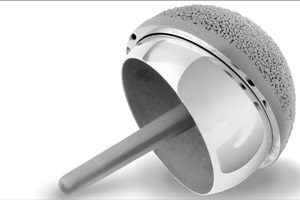
The United Kingdom’s Medicines and Healthcare Products Regulatory Agency has issued updated guidance for Smith & Nephew Orthopaedics Birmingham Hip Resurfacing (BHR) system due to a higher than expected failure rate. According to a medical device alert posted on the regulators’ website on June 25th, the device should not be implanted in women or patients […]

UK Regulators Issue Updated for Smith & Nephew Hip Implants
The notification instructs customers to return all devices that have femoral head sizes 46 mm and smaller. The respective acetabular and dysplasia cups should also be returned. The alert affects patients who are symptomatic, female, or patients with head sizes 46 mm or smaller. Smith & Nephew used recent data from the National Joint Registry (NJR) for England, Wales and Northern Ireland to identify these groups of high-risk patients. The device alert also gave recommendations for affected patients, including the need for blood metal ion testing.
Metal-on-metal hip implants use all-metal surfaces. When these devices were first introduced they were marketed as being more durable and better suited for younger, more active patients. In recent years, however, all-metal hip implants have come under intense scrutiny in the midst of high-profile recalls. The devices have been associated with a high rate of early failure, prompting patients to undergo a revision surgery much earlier than anticipated. Metal hip replacements can lead to complications when the surfaces of the implant rub together, releasing particles in the bloodstream and surrounding tissue.


